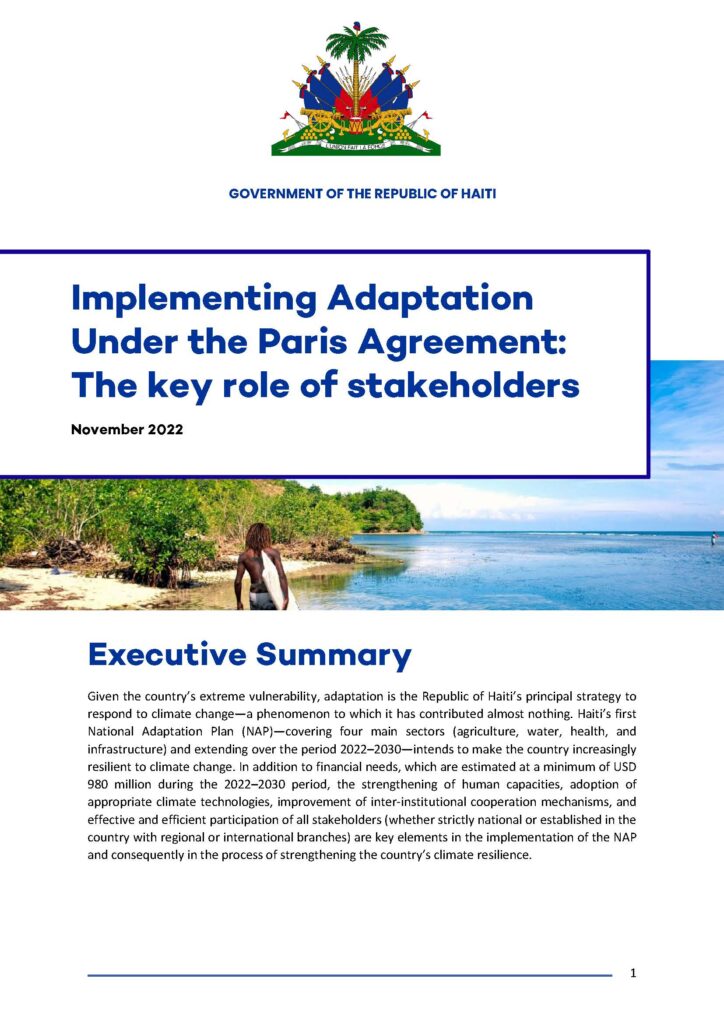
Implementing Adaptation Under the Paris Agreement: The key role of stakeholders
Haiti’s first National Adaptation Plan (NAP)—covering four main sectors (agriculture, water, health, and infrastructure) and extending over the period 2022–2030—intends to make the country increasingly resilient to climate change. In addition to financial needs, which are estimated at a minimum of USD 980 million during the 2022–2030 period, the strengthening of human capacities, adoption of appropriate climate technologies, improvement of inter-institutional cooperation mechanisms, and effective and efficient participation of all stakeholders (whether strictly national or established in the country with regional or international branches) are key elements in the implementation of the NAP and consequently in the process of strengthening the country’s climate resilience.
This policy brief highlights the urgency of NAP implementation in Haiti and outlines the roles that national actors should play in the process of implementing the NAP.
Related content
- Communication d’Haïti relative à l’adaptation
- Stratégie de Communications pour le Processus Plan National d’Adaptation (PNA) d’Haïti
- Civil Society and the Private Sector: Two essential partners for a successful NAP process in Haiti
Publisher: Government of the Republic of Haiti